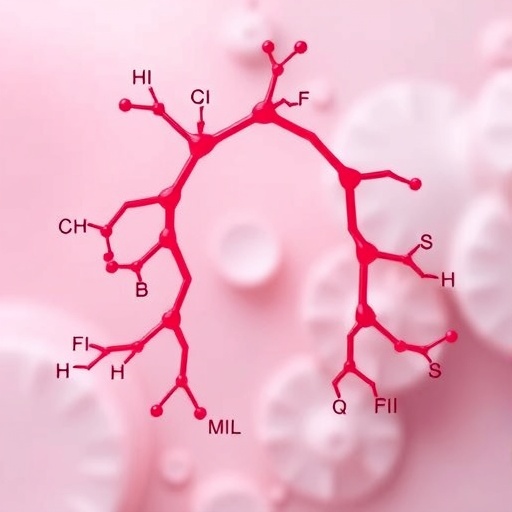
In recent years, the scientific community has made significant strides in understanding the aging process in T cells, a type of white blood cell critical for our immune response. The groundbreaking study by Rousseau, Hajdu, and Ho dives deep into the concept of meta-epigenetic shifts that occur within T cells as they age. This research sheds light on the intricacies of how these cellular changes can lead to aging-related dysfunction and highlights the potential pathways for intervention in age-related immune challenges.
The immune system, particularly its T cell component, undergoes remarkable changes as an individual ages. T cells are responsible for the body’s adaptive immune response, recognizing and responding to pathogens. However, these cells exhibit a decline in functionality over time, leading to an increased susceptibility to infections and a variety of diseases. This decline is partly due to changes in the epigenetic landscape of T cells. The study delves into the mechanisms behind these changes, providing a comprehensive analysis of epigenetic modifications that occur with aging.
Epigenetics, the study of changes in gene expression that do not involve alterations to the underlying DNA sequence, has become a focal point in understanding T cell aging. The researchers examine various epigenetic modifications, including DNA methylation and histone modifications, which can significantly impact gene expression and, consequently, T cell function. Understanding these processes is crucial, as they provide insights into how T cells lose their efficacy over time.
One of the key findings of the study is the identification of specific meta-epigenetic markers associated with aging in T cells. These markers can act as indicators of cellular aging and may help predict the functional status of T cells in individuals. By assessing these markers, researchers hope to develop strategies to rejuvenate aging T cells, potentially restoring their function and enhancing the immune response in older adults.
Moreover, the study discusses the concept of “epigenetic drift,” a phenomenon where epigenetic changes accumulate over time, leading to divergence from the standard T cell phenotype. This drift is associated with altered immune responses and increased inflammation, both hallmark characteristics of aging. By understanding the mechanisms driving epigenetic drift, scientists can explore therapeutic approaches to counteract these effects and improve immune resilience in aging populations.
Another significant aspect of the research is the exploration of interventions that might mitigate the effects of aging on T cells. The authors suggest that lifestyle factors, such as diet, exercise, and stress management, can influence epigenetic changes in T cells. By promoting healthier lifestyles, individuals may be able to stem the tide of aging-related decline in T cell function, paving the way for improved overall health and longevity.
The implications of this research extend beyond aging populations. With the ongoing global challenges posed by infectious diseases, understanding the aging process of T cells can guide vaccine development and immunotherapies. Tailored approaches that consider the unique epigenetic profiles of older adults may lead to more effective immunization strategies, thus enhancing public health outcomes.
Additionally, the study raises important questions about the relationship between chronic diseases and T cell aging. Conditions such as diabetes, obesity, and cardiovascular disease can exacerbate age-related immune dysfunction. By elucidating the epigenetic changes that accompany these diseases, researchers can develop multifunctional therapeutic strategies that address both aging and chronic health conditions in tandem.
As the field of epigenetics continues to advance, the potential for developing novel therapeutics aimed at reversing or compensating for T cell aging becomes increasingly promising. Future research could focus on pharmacological interventions that target specific epigenetic modifications, creating a new frontier in immunotherapy.
Furthermore, the collaborative efforts among various research teams and institutions highlight the importance of a multidisciplinary approach to tackling the complexities of immune aging. Integrating knowledge from genetics, bioinformatics, and clinical studies will foster innovative research avenues and enhance our understanding of T cell biology throughout the lifespan.
In conclusion, the findings presented by Rousseau, Hajdu, and Ho mark a significant contribution to our understanding of T cell aging. By unraveling the meta-epigenetic shifts that occur in T cells, researchers are paving the way for future interventions aimed at reversing the effects of aging on the immune system. As we continue to uncover the complexities of epigenetic regulation, we move closer to developing effective strategies to enhance immune function, improve health outcomes, and ultimately prolong the vitality of aging populations.
This research not only adds to the growing body of literature on immunology and aging but also underscores the dynamic nature of our immune system throughout our lives. Ongoing investigations into the epigenetic underpinnings of T cell functionality will undoubtedly lead to new breakthroughs in maintaining a robust immune response well into old age.
With the integration of technology and experimental approaches, future studies will likely explore the potential of using CRISPR and other gene-editing technologies to target specific genes implicated in T cell aging. The combination of epigenetic research and gene editing holds immense potential for creating precision medicine tailored to individual needs, particularly among the elderly demographic.
The ongoing exploration of T cell aging and its connections to broader health issues is crucial in shaping public health policies and healthcare strategies. Educational initiatives aimed at raising awareness about the importance of immune health and lifestyle choices are essential in supporting successful aging. Finally, as researchers continue to unveil the mysteries of epigenetics and T cell functionality, we can remain hopeful for a future where aging does not equate to diminished immune defenses.
Subject of Research: Aging-related dysfunction in T cells due to meta-epigenetic shifts.
Article Title: Meta-epigenetic shifts in T cell aging and aging-related dysfunction.
Article References:
Rousseau, L., Hajdu, K.L. & Ho, PC. Meta-epigenetic shifts in T cell aging and aging-related dysfunction.
J Biomed Sci 32, 51 (2025). https://doi.org/10.1186/s12929-025-01146-6
Image Credits: AI Generated
DOI: 10.1186/s12929-025-01146-6
Keywords: T cell aging, meta-epigenetics, immune dysfunction, epigenetic markers, epigenetic drift, interventions, immunotherapy, chronic diseases, aging populations.
Tags: adaptive immune response declineage-related immune dysfunctionepigenetic modifications and immune responseepigenetics in immunology researchgene expression changes in aging T cellsimmune system aging and healthinterventions for aging-related immune challengesmeta-epigenetic changes in T cellssusceptibility to infections in elderlyT cell aging mechanismsT cell epigenetics and disease susceptibilityT cell functionality and aging



